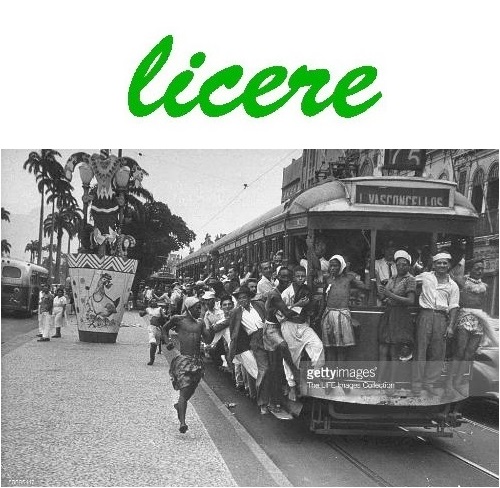Leisure in an Asian Context
Refletions on Brazilian Exchange Students in Japan
DOI:
https://doi.org/10.35699/2447-6218.2016.20398Keywords:
Leisure Activities, International Educational Exchange, CultureAbstract
This research had as main purpose to reflect about the quality of enjoyment of free time of Brazilian students who made exchange to Japan. Have deployed two specific purposes: a) the data collection of scholarships offered by São Paulo public universities for state graduate students of São Paulo, b) verify the students of São Paulo University and São Paulo State University whom already made the exchange and returned to Brazil to analyze the use of their free time during the period abroad. Is considered that the cultural background of the exchange students reveal influences both in the source-country as in the destination-country. They were considered theoretical aspects of leisure and work in Japan; study travels and exchange; and leisure access barriers. Through this research, it was observed that there are several scholarships offered not only by universities, but also by the Japanese government to the Brazilians. Most students had the opportunity to make the trip to Japan for the first time through the scholarships and was motivated mainly by the cultural interest in that country, with rare students who had challenges in the enjoyment of free time during the trip, with many leisure possibilities mainly geared to cultural aspects. The interviewees highlighted positive aspects as accessibility, security, maintenance and infrastructure, as well as the efficiency of transport used and their possible implementation in Brazil. Finally, even with the difficulties encountered by some students on financial aspects during the exchange, everyone could have and chosen to enjoy their free time in leisure activities.
Downloads
References
ASEBEX. Bolsas. Kenpi Ryugaku. Disponível em: http://asebex.org.br/bolsas/kenpi- ryugaku . Acesso em: 02 jul. 2014b.
ASSOCIAÇÃO KAIGAI NIKKEIJIN KYOKAI. Estudos no Japão. Nikkei scholarship. Disponível em: http://www.jadesas.or.jp/pt/kenshu/scholarship.html . Acesso em: 02 jul. 2014.
BRASIL. Turismo de estudos e intercâmbio: orientações básicas. Brasília: Ministério do Turismo, 2008.
CIAMPA, A. Identidade. In: LANE, S.T.M.; CODO, W. (Org.) Psicologia Social: O homem em movimento. São Paulo: Brasiliense, 1991. p. 58-75.
COLE, R. E. Work and leisure in Japan. California Management Review, v. 34, n. 3. Berkeley, 1992. p.51-63.
CONSULADO GERAL DO JAPÃO. Cultura e Educação. Bolsas de estudos MEXT. Disponível em: http://www.sp.br.emb-japan.go.jp/pt/cultura/bolsa1.htm . Acesso em: 02 jul. 2014.
FELL, J. The impact of leisure on work in Britain, West Germany, France and Japan: a cross-cultural comparative study. World Leisure and Recreation, Londres v. 33, n.2, p. 38-41, 1991.
GIARRETA, M. J. Turismo da Juventude. Barueri: Manole, 2003.
HORNE, J. Understanting leisure time and leisure space in contemporary Japanese society. Leisure Studies, Londres, v.7, n. 1, p. 37-52,1998.
IVY, M. Formations of mass culture. In: GORDON, A. (Org). Postwar Japan as History. Berkeley: University of California Press, 1993. p. 39-258.
JICA. Japan International Cooperation Agency. Representação no Brasil. Bolsas e treinamentos. Disponível em: http://www.jica.go.jp/brazil/portuguese/office/trainings.html . Acesso em: 02 jul. 2014.
LA MENDOLA, S. O sentido do risco. In: Tempo Social. Revista de sociologia da USP, v.17, n.2. São Paulo, 2005, p. 59-91.
LINHART, S. Some observations on the development of ‘typical’ japanese attitudes towards working hours and leisure. In: DANIELS, G. (Org). Europe interprets Japan. Tenterden Kent, England, 1984. p. 207-214.
MANZENREITER, W.; HORNE, J. Leisure and consumer culture in Japan. Leisure Studies, Londres, v.25, n. 4, p. 411-415, 2006,
MARCELLINO, N. C. Lazer e educação. Campinas: Papirus, 1987.
MARCELLINO, N. C. Estudos do lazer: uma introdução. 4. ed. Campinas: Autores Associados, 2006.
MARTINS, G. de A.; THEÓFILO, C.R. Metodologia da investigação científica para as ciências sociais aplicadas. São Paulo: Atlas, 2007.
MARTINS, H. T. de S. Metodologia qualitativa de pesquisa. Educação e pesquisa, v.30, n.2, São Paulo, maio/agosto, 2004. p.289-300.
MCCOMARK, G. The price of affluence: the political economy of Japanese leisure. New Left Review, Londres, v. 1, n. 188, p. 121-134, 1991. RUSSEL, B. O elogio ao ócio. Rio de Janeiro: Sextante, 2002.
SEINO, M. Working time, social space and sport. In: HORNE, J.; JARY, D.; SEINO, M.; YAMASHITA, T.; HASHIMOTO, J (Org.). Sociology of sports and leisure: current alternatives. Tokyo: Dowa Shojin, 1995. p. 249-279.
VEAL, A. J. Metodologia de pesquisa em lazer e turismo. São Paulo: Aleph, 2011. UNIVERSIDADE DE SÃO PAULO. Agência de Cooperação Nacional e Internacional. Instituições conveniadas. Disponível em: http://www.usp.br/internationaloffice/index.php/convenios/instituicoes-conveniadas/. Acesso em: 04 abr. 2014.
UNIVERSIDADE ESTADUAL PAULISTA. Assessoria de Relações Externas. Cadastro de convênios. Disponível em: http://www.unesp.br/arex/convenios/index.php Acesso em: 04 abr. 2014.
UVINHA, R. R. Juventude, Lazer e Esportes Radicais. São Paulo: Manole, 2001.

